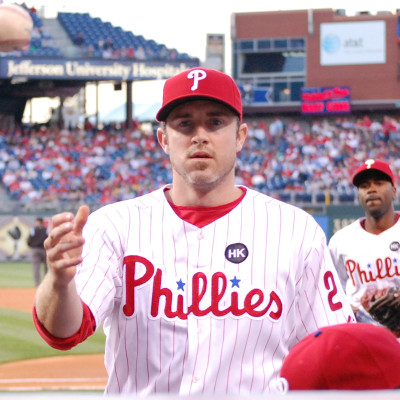
In the seventh inning of Game 2 of the National League Division Series this past Saturday night, Los Angeles Dodgers second baseman Chase Utley slid hard into second base in an attempt to disrupt a double play. While he did successfully break up the play at the bag, he also broke the leg of New York Mets shortstop Ruben Tejada, causing an uproar in the baseball community.
At first glance, I did not see a problem with the slide at all. It is the job of the baserunner traveling from first to second base to disrupt a potential double play by sliding hard into the bag (and/or middle infielder). These types of plays happen all the time.
In fact, it had happened just days earlier in Game 1 of the Texas Rangers vs. Toronto Blue Jays series. Blue Jays third baseman and AL MVP candidate Josh Donaldson suffered an apparent head injury while sliding into second base. Rangers second baseman Rougned Odor’s knee unintentionally struck Donaldson in the head, causing the Toronto slugger to scowl in pain.
After numerous replays, though, it became clear that Utley’s slide was far more than an unintentional knee to the head. Replay shows that Utley’s back leg was essentially level with the bag by the time he started his slide. The slide was high, late and overall, dangerous. However, according to the rules of baseball, and quite unfortunately, it was legal.
The MLB suspended Utley for two games the day after the incident, completely contradicting the call made on the field. Utley filed an appeal for the suspension, which will be heard on Monday. He should win the case, too, since the slide was ruled legal and then deemed illegal less than 24 hours later.
Utley has a built a league-wide reputation of being an old-school (or as former Philadelphia Phillies manager Charlie Manuel would say, “good-school”) fundamentalist ball player. As many websites, blogs and social media users have shown in the days following the controversial play, Utley has been performing “hard slides” into second base for several years. In fact, the slide Utley performed against the Mets in Game 2 is arguably less dirty than a slide he completed about a month ago against the San Diego Padres.
During the Padres game, Utley slid about three feet away from the bag in an attempt to take out second baseman Jedd Gyorko. Again, Utley was successful, as Gyorko ended up throwing the ball well wide of pitcher James Shields, who was covering first base on the play. Utley showed no regard for the basepath, sliding almost six feet away from the bag itself.
After his most recent slide, though, Utley faces harsh scrutiny from fans and analysts across the league, as well as possible punishment from the league itself. There are two reasons this slide is getting so much attention. Firstly, a player suffered a serious injury. Secondly, the outcome of the play dramatically altered the course of the game.
Let me first say that I hate seeing players get hurt like this, especially in a heated battle during the postseason. However, if Tejada gets up after that play, shakes it off, and isn’t injured, I doubt we would have seen as much coverage of the slide.
It’s also worth noting that Tejada left himself in a vulnerable position by attempting a 360 degree spin over the bag. I do not blame Tejada one bit for suffering the injury. But, hypothetically speaking, if Tejada had braced for impact (or at the very least, saw Utley barreling down on him), perhaps he would’ve suffered a less serious injury.
On the second point, according to FiveThirtyEight Sports, the play that broke up the double play increased the Dodgers odds of winning by a remarkable 40 percentage points.
Then, to make matters worse for New York, the umpires somehow ruled Chase Utley safe at second base since “nobody tagged him out.” Utley did not touch second base. He did not attempt to touch second base. He was perfectly content with returning to the dugout, since his job was done.
The Mets were ahead one run at the time of the slide, and a double play would’ve delivered a crushing blow to the Dodgers. Instead, they were lifted to victory.
Through all the events of that game and after, though, I find one thing most disturbing. In 2011, the MLB changed its stance on home-plate collisions (which had been considered “a part of the game” for decades), and essentially eliminated collisions altogether. Though the decision was reached due to a number of reasons, a key proponent in the rule change was a brutal injury suffered by San Francisco Giants catcher Buster Posey in 2011.
Hopefully the MLB learns from Chase Utley’s slide, and protects its middle infielders half as much as it protects its catchers. Hopefully by this time next year, I’ll be able to say that Utley’s slide won’t be legal anymore.

